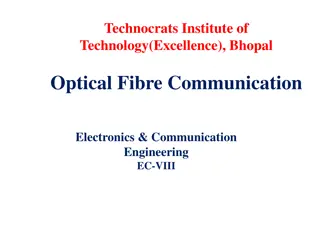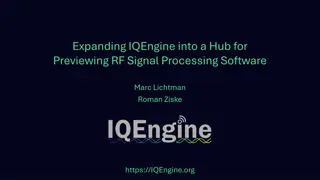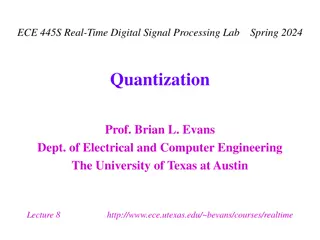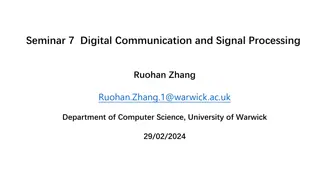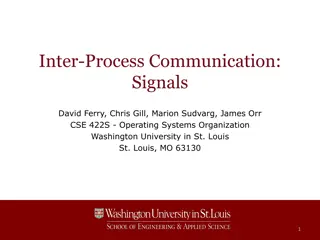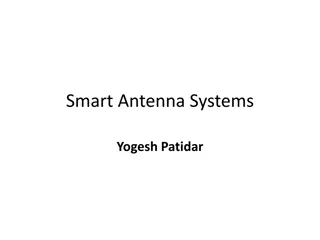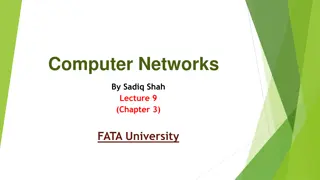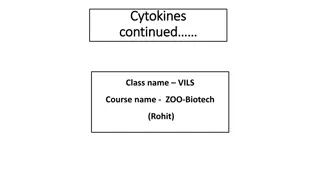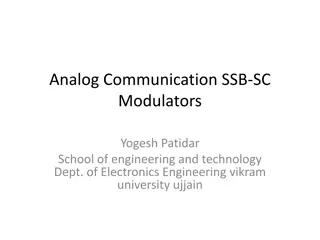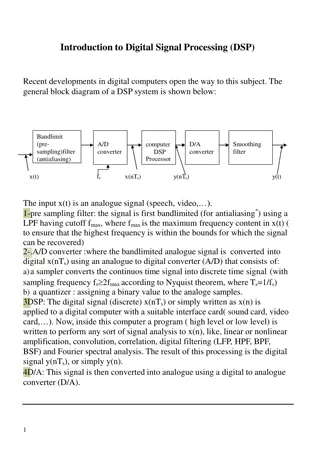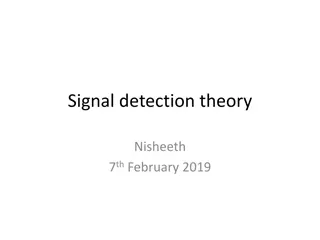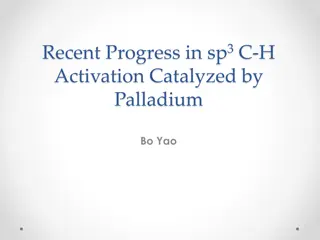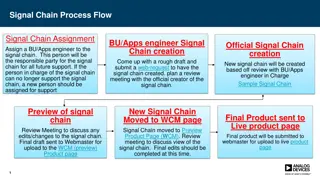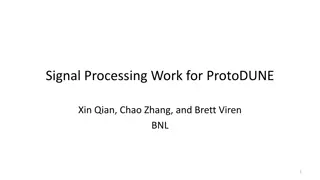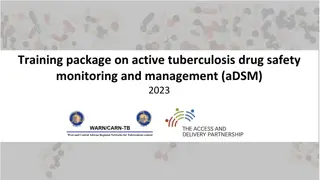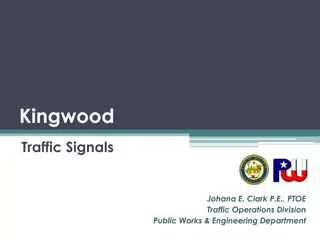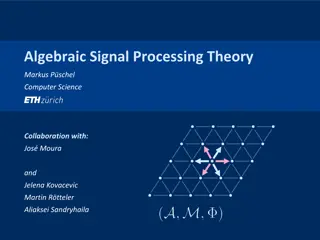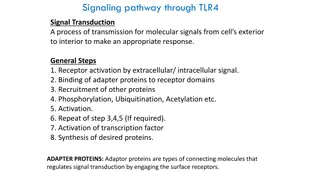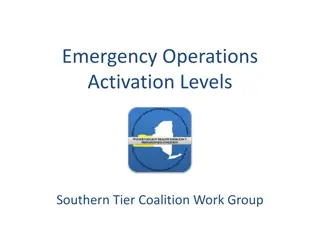Understanding Data Acquisition and Instrument Interface
In the realm of data acquisition and instrument interface, various components come together to sense physical variables, condition electrical signals, convert analog to digital data, and analyze the acquired information. This process involves transducers, signal analysis, instrument automation, and
4 views • 54 slides
Prevalence of KIT D816V Mutation in Patients with Systemic Mast Cell Activation
This study presents findings from the PROSPECTOR clinical trial on the prevalence of the KIT D816V mutation in the peripheral blood of patients with systemic mast cell activation. The study involves multiple centers globally and sheds light on the significance of this mutation in systemic mastocytos
5 views • 14 slides
Understanding Interpolation and Pulse Shaping in Real-Time Digital Signal Processing
Discrete-to-continuous conversion, interpolation, pulse shaping techniques, and data conversion in real-time digital signal processing are discussed in this content. Topics include types of pulse shapes, sampling, continuous signal approximation, interpolation methods, and data conversion processes
4 views • 14 slides
Understanding Optical Fiber Signal Degradation in Communication Engineering
Technocrats Institute of Technology (Excellence) in Bhopal delves into the concepts of signal degradation in optical fiber communication, focusing on attenuation, distortion mechanisms, and measurement techniques. The institute emphasizes the importance of signal attenuation and its impact on inform
6 views • 56 slides
Expanding IQEngine: A Hub for Previewing RF Signal Processing Software
IQEngine is evolving into a versatile hub where users can manage, analyze, process, and share RF signal recordings directly in their browser. Built on an open standard, IQEngine stores data such as sample rate, center frequency, and IQ data type to prevent data degradation. Frontend powered by React
7 views • 22 slides
Real-Time Digital Signal Processing Lab: Quantization and Resolution Overview
Explore quantization and resolution techniques in real-time digital signal processing. Topics include quantization error analysis, total harmonic distortion, noise immunity in communication systems, human sensory resolution, analog-to-digital conversion, and uniform amplitude quantization. Dive into
7 views • 19 slides
Unlock the full potential of Windows 10 with a best Genuine Activation Key
Unlocking the full potential of Windows 10 requires a genuine activation key that provides access to all the features and functionalities of the operating system. A genuine activation key not only ensures compliance with Microsoft's licensing terms but also guarantees security updates, technical sup
3 views • 8 slides
Seminar 7 Digital Communication and Signal Processing
Learn how to design a second order ARMA filter to suppress sinusoidal disturbances in a signal while preserving the original signal. The process involves deriving the transfer function, determining coefficients, and sketching a block diagram representation of the filter.
0 views • 7 slides
Understanding Inter-Process Communication Signals in Operating Systems
Signals in inter-process communication are asynchronous notifications delivered to specific processes, allowing event-based programming. Processes can handle signal delivery by ignoring it, terminating, or invoking a signal handler. Signal handlers can be written in two ways - one handler for many s
0 views • 21 slides
Smart Antenna Systems Overview: Enhancing Wireless Performance
Smart antenna systems, like adaptive array antennas and switched beam antennas, combine antenna arrays with digital signal processing to transmit and receive signals adaptively. These systems improve signal quality, reduce interference, and increase capacity by dynamically adjusting radiation patter
0 views • 20 slides
Understanding the Nutrition Cluster Activation and Core Functions
Exploring Level 3 emergencies, the process of cluster activation and deactivation, and the core functions of the Nutrition Cluster at the country level. Learn about the criteria for cluster activation, gaps in response, and the strategic approach to humanitarian system-wide emergency activation. Dis
3 views • 21 slides
Understanding Transmission Impairments in Computer Networks
Signals traveling through transmission media in computer networks can experience attenuation, distortion, and noise, leading to signal loss and changes in form or shape. Attenuation results in energy loss requiring amplification, while distortion alters the signal's composition. Engineers use decibe
1 views • 12 slides
Understanding Thrombolytic Therapy and Plasminogen Activation
Thrombolytic therapy involves the use of drugs to dissolve blood clots, with plasminogen activation being a key mechanism. Different types of thrombolytic drugs like fibrin-specific and non-fibrin-specific agents are available, each with varying effects on clot dissolution and systemic plasminogen a
1 views • 13 slides
Understanding the Significance of Cytokines in Immune Response
Cytokines play a crucial role in immune response activation and regulation. They are secreted by various cell types like lymphocytes, monocytes, and macrophages, exerting diverse biological functions, including immune system development, inflammatory response induction, and hematopoiesis regulation.
2 views • 12 slides
Understanding SSB-SC Modulation in Analog Communication
Single Sideband Suppressed Carrier (SSB-SC) modulation is a technique in analog communication that transmits a single sideband along with the carrier signal, offering advantages such as reduced bandwidth consumption, increased signal transmission capacity, and lower noise interference. However, the
0 views • 9 slides
Overview of Digital Signal Processing (DSP) Systems and Implementations
Recent advancements in digital computers have paved the way for Digital Signal Processing (DSP). The DSP system involves bandlimiting, A/D conversion, DSP processing, D/A conversion, and smoothing filtering. This system enables the conversion of analog signals to digital, processing using digital co
1 views • 24 slides
Advanced Emergency Braking System (AEBS) Definition and Activation Guidelines
The provided content outlines the definition and activation requirements of the Advanced Emergency Braking System (AEBS). It covers the phases involved, including Collision Warning and Emergency Braking, as well as the speed limitations for activation. The system aims to automatically detect potenti
0 views • 12 slides
Understanding Signal Detection Theory in Psychophysics
Signal Detection Theory in psychophysics quantifies how observers respond to signals in noise. It involves mathematical models like psychometric functions to measure bias and sensitivity in detecting stimuli. Key concepts include sensitivity and criterion in distinguishing signal perception and repo
6 views • 24 slides
Advances in sp3C-H Activation Catalyzed by Palladium - Bo Yao
Recent progress in the field of sp3C-H activation catalyzed by palladium has led to significant insights and challenges. Concepts related to C-H activation, strategies employed, and identified obstacles are discussed, highlighting the importance of this area in catalysis research.
0 views • 15 slides
Traffic Control and Coordination: Next Generation Signal Controller Overview
Explore the evolution of traffic signal controllers in Australia, from VC5 to VC6, along with the software integration and system overview. Learn about the hardware configurations and capabilities of the latest TSC/4 controllers, including signal group monitoring and conflict capabilities. The new g
4 views • 10 slides
RRM Enhancement for NR and MR-DC: PUCCH SCell Activation Requirements
In the electronic meeting of 3GPP TSG-RAN-WG4, the discussions focused on enhancing RRM for NR and MR-DC, specifically addressing PUCCH SCell activation/deactivation requirements. Points were made regarding the ending points of PUCCH SCell activation for both valid and invalid TA cases, beam informa
0 views • 15 slides
Mastering the Art of Introducing Quotes with Signal Phrases
Understanding the importance of signal phrases in academic writing. Signal phrases provide context, establish credibility of sources, and prevent dropped quotes. Learn the key elements required for an effective signal phrase and how to structure them using different formulas. Enhance your writing by
1 views • 16 slides
Developing and Managing Signal Chains for Future Support
Create a system to assign a responsible person for signal chains, initiate the chain creation process, review and finalize the signal chain, and move it to the live product page. Guidelines include color codes for blocks, assigning part numbers to each block, and adding images to the signal chain.
1 views • 4 slides
Advancements in Signal Processing for ProtoDUNE Experiment
The team, including Xin Qian, Chao Zhang, and Brett Viren from BNL, leverages past experience in MicroBooNE to outline a comprehensive work plan for signal processing in ProtoDUNE. Their focus includes managing excess noise, addressing non-functional channels, and evolving signal processing techniqu
1 views • 23 slides
Comprehensive Training Package on Active Tuberculosis Drug Safety Monitoring and Management (aDSM) 2023
This training package focuses on signal detection in active tuberculosis drug safety monitoring. It covers the main aims and principles of signal detection, completion of safety profiles for new TB drugs and regimens, definition of signal, continuous reporting activities, construction of risk profil
5 views • 15 slides
Kingwood Traffic Signals Overview and Updates
Traffic operations in Kingwood, managed by Johana E. Clark, P.E., include signal system improvements and updates. Recent changes involve signal removal studies, new signal installations, and upgrades at key intersections to enhance traffic flow and safety. The system's capacity and daily traffic vol
1 views • 11 slides
Shadow Opinion on Activation Purposes Proposal: Insights and Recommendations
The shadow opinion addresses definitions, interpretations, and the proposed classification criteria for activation purposes in balancing energy bids. It discusses the clarity of terminology, necessity of terms, and the need for a comprehensive list of possible purposes. Additionally, it raises conce
0 views • 7 slides
Carnegie Mellon Algebraic Signal Processing Theory Overview
Carnegie Mellon University is at the forefront of Algebraic Signal Processing Theory, focusing on linear signal processing in the discrete domain. Their research covers concepts such as z-transform, C-transform, Fourier transform, and various signal models and filters. The key concept lies in the al
2 views • 40 slides
Signaling Pathway Through TLR4: A Molecular Signal Transduction Process
Signaling through Toll-like Receptor 4 (TLR4) involves a series of steps starting from receptor activation to transcription factor activation, leading to the synthesis of desired proteins. The pathway can occur through MyD88-dependent or TRIF-dependent pathways, resulting in different downstream eff
0 views • 5 slides
Emergency Operations Activation Levels in Healthcare
Develop a plain language Emergency Operations Plan activation level matrix to enhance the common operating picture among healthcare and emergency management agencies. Hospitals use varying means to describe activation levels, and implementing plain language descriptors will facilitate mutual aid and
1 views • 13 slides
DL Synchronization and TCI State Activation Discussion
Discussing DL synchronization including TCI state activation with scenarios for beam indication timing, unified TCI framework, and reducing handover delay for Rel-18 LTM. Different procedures for DL synchronization and TCI state activation are explored, highlighting the importance of understanding a
0 views • 7 slides
Agreements on Core Requirement Maintenance of Direct SCell Activation
Companies provided contributions on core requirement maintenance to RAN4#99-e, focusing on timelines, known conditions, and measurement thresholds for Direct SCell Activation in NR.FRI. This document outlines unresolved issues and agreements reached regarding activation procedures, condition require
0 views • 6 slides
Understanding Activation Rate in Link 2017: Insights and Strategies
Activation rate in the context of Link 2017 refers to the process where newly elected members attend their first Order of the Arrow (OA) event, indicating their activation. The journey of a new member involves awareness, election, call-out, induction, activation, engagement, and renewal. The data fr
0 views • 17 slides
RWA Housing Society Activation BTL Activation
RWA Housing Society Activation is a targeted BTL (Below The Line) marketing strategy by Fulcrum Resources that engages directly with residents in housing societies. This activation aims to create brand awareness and generate leads by organizing event
3 views • 5 slides
Activation and Smart Safety Nets in the Western Balkans: Addressing Employment Challenges
Activation strategies aim to transition individuals from dependence on social benefits to active participation in the labor market. The Western Balkans face high unemployment rates, highlighting the need for effective activation policies. By emphasizing employability and reintegration, activation in
0 views • 40 slides
Understanding Chemical Kinetics: Reaction Rates and Activation Energy
Exploring the fundamental concepts of chemical kinetics, this content delves into reaction rates, collision theory, and activation energy in chemical reactions. It emphasizes the importance of particle collisions, correct orientation, and energy requirements for reactions to occur. Through energy di
0 views • 17 slides
Activation Programmes & Policies in OIC Member States by Chris Melvin
The Centre for Economic and Social Inclusion, led by CEO Chris Melvin, conducted research on activation policies in OIC Member States. The study focused on job search support, skills training, and job creation to enhance employability. Methodology included assessing national policy objectives, progr
0 views • 25 slides
Nutrition Cluster Core Functions and Activation Strategies
The Nutrition Cluster aims to support service delivery, inform strategic decision-making, and plan and implement cluster strategies to address the needs and priorities of affected populations. Core functions include supporting service delivery, advocacy, capacity-building, and monitoring and evaluat
0 views • 19 slides
Understanding Inter-Process Communication Signals in Operating Systems
Signals in operating systems play a critical role in facilitating asynchronous notifications between processes. They allow for event-based programming and are conceptually similar to hardware interrupts and exceptions. Processes can handle signal delivery by ignoring it, terminating, or invoking a s
0 views • 24 slides
Understanding Fast Fourier Transform (FFT) in Signal Processing
Fast Fourier Transform (FFT) is a powerful algorithm used in signal processing to efficiently calculate the Discrete Fourier Transform (DFT). This advanced technique leverages symmetry and periodicity properties to reduce computational complexity, making it a key tool in digital signal analysis. By
0 views • 14 slides



